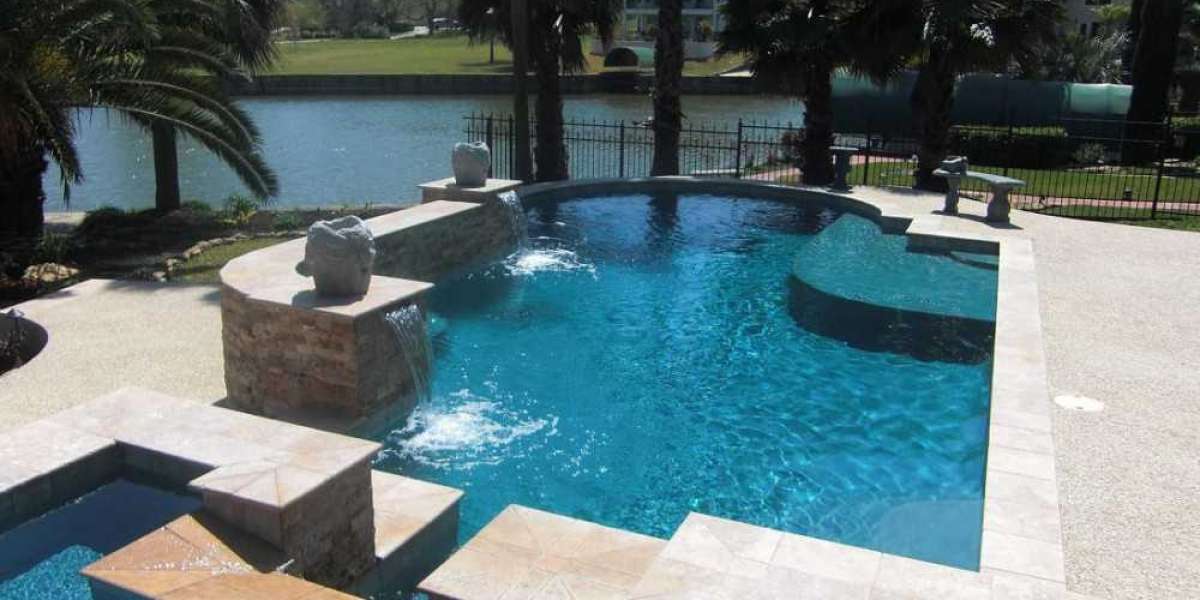Swimming pools provide relaxation, fun, and a great way to cool off, but they can also be significant energy and water consumers.
If you're considering a pool renovation, making eco-friendly upgrades can reduce your carbon footprint, lower utility costs, and enhance sustainability.
This guide explores the best water- and energy-saving pool renovations that will transform your backyard oasis into an eco-conscious retreat.
1. Install a Variable-Speed Pump
Traditional single-speed pool pumps run at a constant speed, often consuming excessive energy. Upgrading to a variable-speed pump (VSP) allows for better energy efficiency, as it adjusts speed based on the pool’s needs.
These pumps use up to 80% less energy than traditional models, leading to significant cost savings. Additionally, VSPs often qualify for energy rebates, making them a smart long-term investment.
2. Switch to a Solar Pool Heater
Heating a pool can be one of the biggest energy expenses. Instead of using gas or electric heaters, consider a solar pool heating system.
Solar panels collect and convert sunlight into heat, significantly reducing reliance on fossil fuels.
Although the initial installation cost is higher, solar heaters can cut heating expenses by up to 70% and last longer than conventional heating systems.
3. Upgrade to LED Pool Lighting
If your pool still uses incandescent or halogen bulbs, switching to LED lighting is an easy and effective eco-friendly upgrade.
LED lights consume up to 80% less energy, last much longer, and provide brighter, customizable lighting.
This simple change enhances the ambiance of your pool while lowering energy consumption.
4. Use a Pool Cover to Reduce Evaporation
Water evaporation is one of the biggest causes of water loss in pools. A solar pool cover or liquid pool cover significantly reduces evaporation, keeping more water in your pool.
Additionally, pool covers help retain heat, reducing the energy required for heating.
By using a cover regularly, you can reduce water loss by up to 50% and lower heating costs.
5. Opt for Energy-Efficient Filtration Systems
Traditional pool filters, especially sand filters, require frequent backwashing, which wastes water.
Upgrading to cartridge filters or Diatomaceous Earth (DE) filters reduces water waste and improves filtration efficiency.
Cartridge filters, in particular, require less frequent cleaning and use less water, making them an eco-friendlier choice.
6. Consider Saltwater or Natural Pools
Chlorine pools require a constant supply of chemicals, which can be harmful to the environment. Instead, consider converting to a saltwater pool or a natural pool:
- Saltwater pools generate chlorine naturally through electrolysis, reducing the need for added chemicals. They also provide a gentler swimming experience for the skin and eyes.
- Natural pools use biological filtration and aquatic plants instead of chemicals, creating a self-sustaining ecosystem with minimal environmental impact.
7. Install Smart Pool Automation
Smart technology can optimize pool operation, making it more energy-efficient. Installing smart pool controllers allows you to automate pump speeds, heating schedules, and lighting based on real-time needs.
These systems prevent unnecessary energy use and help maintain an eco-friendly pool with minimal effort.
8. Use Eco-Friendly Pool Surfaces
The materials used in your pool's surface and decking can also impact sustainability.
Recycled glass tiles, permeable pavers, and natural stone are environmentally friendly options that offer durability and aesthetic appeal.
Choosing a lighter-colored pool surface can also help reflect sunlight, reducing the need for additional heating.
9. Harvest Rainwater for Pool Use
Rainwater harvesting is a great way to reduce dependency on municipal water supplies.
Installing a rainwater collection system allows you to channel and store rainwater for pool refills.
This practice not only conserves water but also reduces your utility bills.
10. Regular Maintenance for Maximum Efficiency
Keeping your pool in top shape is essential for energy and water efficiency. Ensure that your pool is well-maintained by:
- Fixing leaks promptly to prevent water waste.
- Cleaning filters regularly for optimal performance.
- Checking pump efficiency and replacing old equipment with energy-saving models.
By incorporating these sustainable renovation ideas, you can significantly reduce your pool’s environmental impact while enjoying long-term savings.
Eco-friendly pools are not just good for the planet—they create a healthier and more enjoyable swimming experience for you and your family.
Final Thoughts
Eco-friendly pool renovations offer a win-win solution for homeowners looking to save water, cut energy costs, and reduce their environmental footprint.
Whether it’s upgrading to a solar heater, using a pool cover, or switching to a saltwater system, every small change makes a difference.
With the right approach, you can create a sustainable swimming paradise that benefits both your wallet and the environment.








